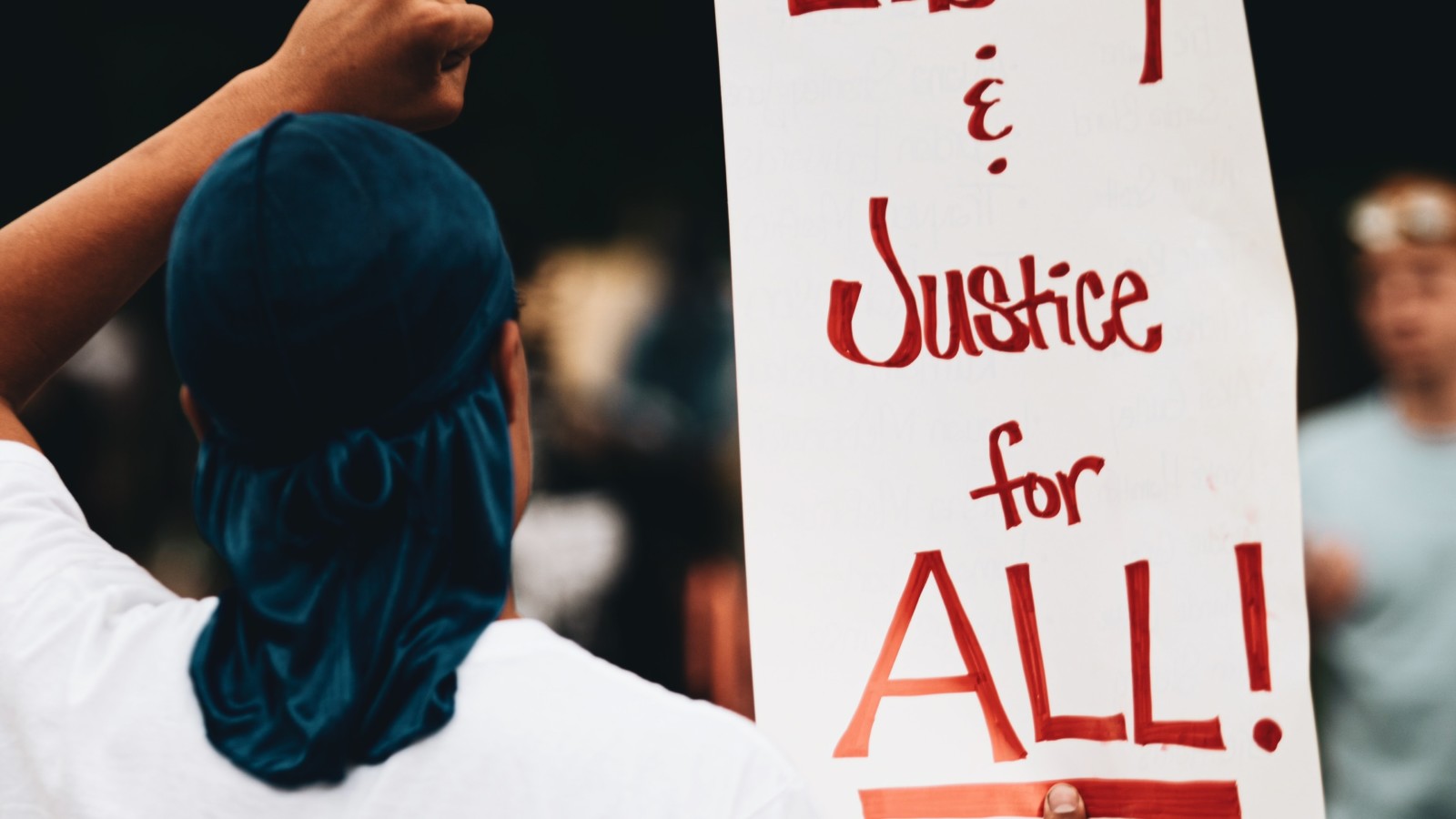From kindergarten through 12th grade the first ten minutes of the school day were routine. We would start with attendance, uniformly stand, look toward the U.S. flag, place our right hand over our heart, and recite, “I pledge allegiance to the flag of the United States of America, and to the republic for which it stands, one nation, under God, indivisible, with liberty and justice for all.” These societal ideals we claim to hold are worth aspiring to. However, these truths that we hold to be self-evident are in reality anything but. As I ponder my experiences and the experiences of my friends and family: I ask: Are the founding principles of liberty and justice really designed for ALL in this country, or just those who can afford it?
The truth is, there has always been a systemic effort to criminalize being Black and poor in the United States as a way to limit the freedom of African Americans and maintain their availability as a source for cheap involuntary labor. Don’t believe it? Immediately after the Civil War several southern states passed what became known as “Black Codes.” These codes were nothing more than broad vagrancy laws that allowed police to arrest Black people for minor infractions. This allowed slavery to continue under the guise of incarceration and “rehabilitation.” This rehabilitation, otherwise known as involuntary labor was responsible for many of the railroads that were built in this country. It’s no wonder that incarceration fails to offer legitimate rehabilitation until this day, as it was never designed to solve “criminal behavior” only designed to designate members of our community as “criminals”.
You may be thinking, “That’s terrible, but it doesn’t happen today.” This is where the hypocrisy of the justice system shines bright. Today, the courts won’t prosecute an individual for being poor. However, they will penalize you for being subject to the limitations associated with poverty. As psychiatrists we are keenly aware of the complicated relationship between poverty, race, and mental illness. According to the most recent census, 18.8% of African Americans live below the poverty line. About 15% of men and 30% of incarceration women have a mental illness. However, black people with mental health conditions are more likely to be incarcerated that other races. While the courts may make accommodations such as providing a court appointed lawyer if you cannot afford one, these allowances are often performative in nature and meaningless in practice.
Let me provide an example. Last month my little brother called me frantically exclaiming that he would go to jail if he did not appear in court. To provide some context, a few months prior, my brother, who works for a home moving company, was stopped while making an interstate delivery to Kentucky. He was issued a citation because the company truck he was driving did not have certain certificates that are required for transport. He was given a court-appointed lawyer and a court date was set. Not living in Kentucky, it was crucial that he talk with the court-appointed attorney. However, as the court date approached, he found himself no closer to speaking with his lawyer than the day he was appointed. He called and left messages several times but he never received one response.
On the day scheduled for my brother to appear in court I found myself on the phone with the court clerk. The conversation went something like this:
Me: “Is it possible to have an extension or a stay?” The clerk’s response was as cold as it was misinformed.
Clerk: “If he doesn’t come, he’s going to go to a jail.”
Me: “Can he participate in his trial via Zoom like his court paperwork indicates?”
Clerk: “The judge won’t approve him to participate via Zoom.”
Me: “Why not?”
Clerk: “It’s the judge’s discretion.”
At this point the clerk talked to someone in the background and came back and said, “All the cases on the docket were rescheduled for another day. If your brother cannot be here, he’ll need an attorney. If he cannot reach the court appointed attorney, he’ll need to pay for one.”
Despite my brother calling and trying to make accommodations, they were going to make him miss a day of work and drive all the way to Kentucky just to tell him that his docket was rescheduled. At that moment I realized yet again that being black and poor almost ensures your failure if you’re ever unlucky enough to have an encounter with the justice system. The good news is that for a fee of what amounts to more than a month’s salary for many, you can obtain the services of an attorney that will make everything disappear. In America, you get what you pay for. Even liberty and justice can be yours for the right price. I guess the saying is correct, “Freedom isn’t free.”


